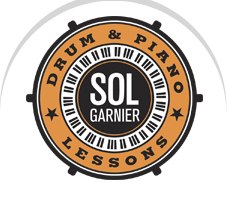I am currently going through the components that can help someone to become a professional musician. In the last post I covered the playing part, meaning that most working musicians have to practice their instrument for long hours to get the skills they need.
It is now time to open up a new chapter in that discovery.
Listening.
For those who have been reading this blog regularly, they know how important this is. Sometimes listening is more important than playing: The pleasure of music is not necessarily in its complexity.
Listening is also about the sharing of one’s art. Yes, we can give concert just by ourselves like Liszt did (Look it up!), or you can play all instruments on your recordings a la Stevie Wonder or Dave Grohl. But, in general, music should be enjoyed in a group. Which means you have to listen.
Listening has many benefits, like helping a band staying glued together. It also facilitate the dynamics, the whole gang swelling or shrinking the sounds at the same time. Thirdly, it can give a window into the musician’s heart, his state of mind and his emotions. When you listen with that angle to the trumpet of Miles Davis, you always know what he’s thinking and feeling: he makes it obvious for others to hear it. That’s the part that interest me the most because, as a teacher, I have to listen to my students and try to understand where they are. Listening to their playing or to the tone of their voice helps me out a lot to decide how I am going to talk to them so that they listen (Which is my job).
How do you listen? How do you develop the tools needed to interact professionally on the bandstand? How do you train yourself to be sensitive to someone’s mood as they phrase their solos? How do you emphasize that part of your brain who will make what you hear an equal to what you play, and, maybe more than that, a partner?
I, hereby, throw this challenge to the world: find me books as plentiful, as diverse, as important as the thick catalog dedicated to learning to play an instrument, give me the titles, give me the topics, so that I can relay that to the vast crowd following this blog. Respond on my email address:
Maybe for the rest of the population a commonly used word is “Look!”, but for musicians it should be “Listen!”.
P.S: I do not talk about transcribing, which is the art of hearing notes and committing them to paper. I don’t promote that because I think it’s a gateway drugs for musicians. When they do that they forget about what in their heart. In moderation, transcribing is great, but calling transcribing the whole of listening is a concept I do not support.
